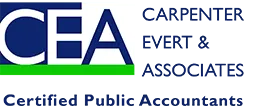June 29, 2021
Minnesota Wage Theft Bill Goes into Effect on July 1st, 2019
Written by Kristy Fahland
Starting July 1, 2019, Minnesota law will impose new recordkeeping requirements for employers, require that employers provide written wage related information to newly hired employees, and change pre-existing law as to the payment of final wages and commissions to terminated employees. Criminal penalties for intentional wage theft are available effective August 1, 2019.
Key provisions of the new law are as follows:
Notice to Newly Hired Employees Employers are required to provide a written notice to all newly hired employees including:
New Earning Statement Requirements In addition to all previously required information, employers must now also include the following on their earnings statements (paystubs):
New Policy/Handbook Recordkeeping Requirements Employers are required to maintain records of all personnel policies provided to employees along with a brief description of the policies and the date they were given to employees. These records must be kept for three years for most employers.
Changes to Employee Payment Requirements Employers are required to pay all wages, now including all salary, earnings and gratuities, at least once every 31 days, and all commissions earned by an employee at least once every three months. Upon termination, all commissions must be paid to employees within 10 days. Additionally, penalties for failing to timely pay wages upon termination have been increased.
The legislature also approved criminal penalties for intentional wage theft where there has been a proven intent to defraud.
To ensure compliance with the new law, employers should review and update their hiring documents, earnings statements, company handbooks or other policy documents as well as any compensation and/or commission practices. Employers should create a form and process for providing wage notices, and updated those notices at the required times. As the Department of Labor has strongly encouraged employers to provide the written notice to current employees as well, employers should consider this suggestion. Employers should also ensure policy documents and handbooks, along with signature pages, are maintained, update their document retention policies to reflect these new obligations, make any necessary changes to their earning statements and review pay practices and commission plans. The changes and requirements of the new bill are a good opportunity for employers to review a number of items including their commission policies and employee classifications. Employers may also need to contact their outside providers, including payroll processing companies, to ensure compliance with the new requirements.
If you have questions or concerns about these new changes, or would like to discuss ways to review and evaluate your current employment practices, please contact Kristy Fahland .
Messerli Kramer’s experienced employment law attorneys are available to assist employers in navigating a variety of employment law issues and would be honored to help you.
Learn More about Messerli Kramer’s Attorneys
Kristy A. Fahland
Notice to Newly Hired Employees Employers are required to provide a written notice to all newly hired employees including:
- Employment status and whether the employee is exempt from minimum wage, overtime and other state wage and hour laws, and on what basis;
- Regularly scheduled paydays and the number of days in the pay period;
- The date the employee will receive the first payment of wages earned;
- The employee’s rate or rates of pay and the basis thereof (including whether the employee is paid by the hour, shift, day, week, salary, piece, commission or other method and the specific application of any additional rates);
- Allowances, if any, that may be claimed for permitted meals and lodging;
- Provision of paid vacation, sick time or other paid time off and how the time off will accrue as well as terms of its use;
- A list of deductions that may be made from the employee’s pay;
- The Employer’s legal name and operating name, as well as the employer’s physical main office address or principal place of business, mailing address (if different), and telephone number.
New Earning Statement Requirements In addition to all previously required information, employers must now also include the following on their earnings statements (paystubs):
- Employee’s rate or rates of pay and the basis thereof, including whether the employee is paid by the hour, shift, day, week, salary, piece, commission or other method;
- Allowances claimed for permitted meals and lodging;
- The employer’s physical office address or principal place of business and a mailing address (if different), along with the employer’s phone number.
New Policy/Handbook Recordkeeping Requirements Employers are required to maintain records of all personnel policies provided to employees along with a brief description of the policies and the date they were given to employees. These records must be kept for three years for most employers.
Changes to Employee Payment Requirements Employers are required to pay all wages, now including all salary, earnings and gratuities, at least once every 31 days, and all commissions earned by an employee at least once every three months. Upon termination, all commissions must be paid to employees within 10 days. Additionally, penalties for failing to timely pay wages upon termination have been increased.
The legislature also approved criminal penalties for intentional wage theft where there has been a proven intent to defraud.
To ensure compliance with the new law, employers should review and update their hiring documents, earnings statements, company handbooks or other policy documents as well as any compensation and/or commission practices. Employers should create a form and process for providing wage notices, and updated those notices at the required times. As the Department of Labor has strongly encouraged employers to provide the written notice to current employees as well, employers should consider this suggestion. Employers should also ensure policy documents and handbooks, along with signature pages, are maintained, update their document retention policies to reflect these new obligations, make any necessary changes to their earning statements and review pay practices and commission plans. The changes and requirements of the new bill are a good opportunity for employers to review a number of items including their commission policies and employee classifications. Employers may also need to contact their outside providers, including payroll processing companies, to ensure compliance with the new requirements.
If you have questions or concerns about these new changes, or would like to discuss ways to review and evaluate your current employment practices, please contact Kristy Fahland .
Messerli Kramer’s experienced employment law attorneys are available to assist employers in navigating a variety of employment law issues and would be honored to help you.
Learn More about Messerli Kramer’s Attorneys
Kristy A. Fahland













